
2024
The following UTeach classes were taught during Spring 2024:
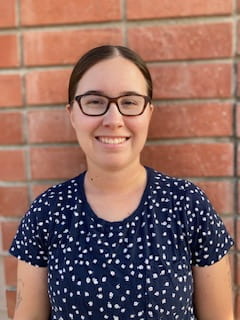
Lily Amidon
Major: History, Gender & Sexuality Studies
History and Hamilton
Biography:
Hi everyone! My name is Lily Amidon (she/her), a fourth-year student studying history and gender and sexuality studies, and I am so excited to teach “History and Hamilton” this spring! I have lived in Southern California my entire life, and I previously attended Santiago Canyon College (2020-2022) before transferring to UCI, my dream school. I love research: I am currently writing my honors thesis on women’s resistance in occupied France during World War II, and I have written several papers that combine my interests in history, women’s history, sports studies, media studies, and gender and sexuality studies. Off campus, I spend a lot of time attempting to get through my TBR, playing with my three dogs, being creative (through art, writing, video games, and music), playing lacrosse for UCI, and watching science fiction, fantasy, and historical (or history-inspired) shows and movies. I became interested in teaching because of some great teachers, a family tradition, and years of coaching youth lacrosse here in Orange County. After UCI, I plan on attending graduate school to obtain a Ph.D. in history (with a certificate in gender studies) so I can pursue my dream of becoming a professor, and UTeach is setting me on that path. My goal as a UTeach instructor and, eventually, a professor is to share what I love with others and hopefully have students learn something along the way. I cannot wait to share this course with you – there’s a million things I haven’t done, but just you wait because I am not throwing away my shot!
Course Description:
Students will examine Hamilton: An American Musical and analyze the inclusion and exclusion of particular historical figures, such as the Founding Fathers, topics, and events, as well as their portrayal by a diverse and atypical cast of non-white performers. Through this groundbreaking production, students will explore intersections between race, class, and gender to better understand the musical’s impact on the popular perception and depiction of this historical moment. Students will explore the challenges of depicting race, gender, and sexuality in period pieces in the context of the musical’s contemporary reframing of historical figures and events. Students will support their analyses with evidence from academic secondary sources. In short, students will examine how Hamilton both casts and depicts well-known historical figures, how its creators use distinct music genres to do so, and what the causes and consequences of these creative decisions mean for Hamilton’s portrayal of late eighteenth century American history.
Enrollment Information: TBA
Faculty Mentor: Dr. Allison Perlman
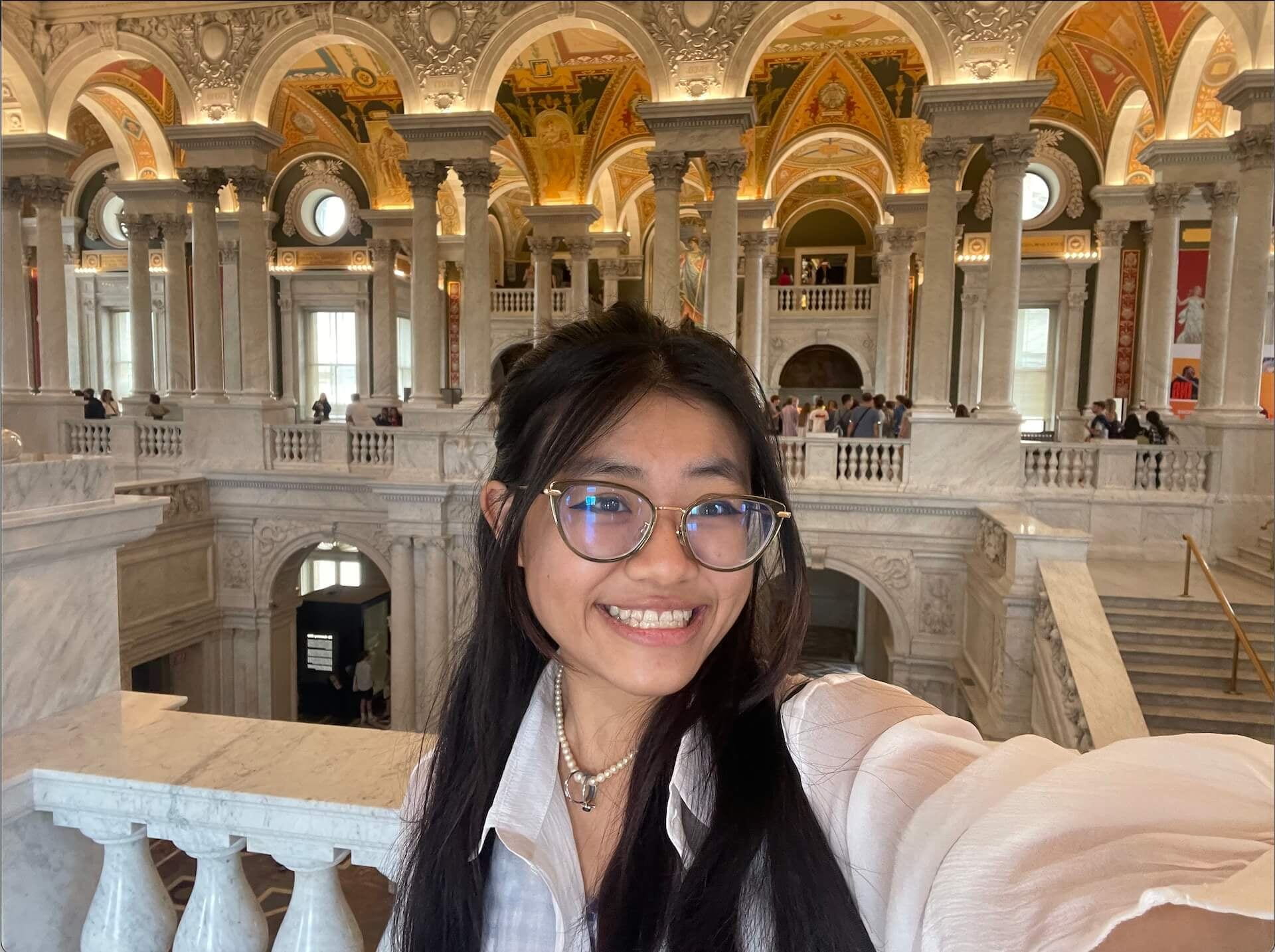
Kayla Phuong Hoang
Major: English, History
Southeast Asian Gangs in California
Biography:
Hello to all, and welcome to “Southeast Asian Gangs in California”! My name is Kayla, and I am a current English and History double major teaching a course this spring quarter about the history, formation, and fostering of various Southeast Asian gang groups in California history, from the late 20th century into modern day. As a Vietnamese-American, I’ve always been super interested in learning about my ethnic community’s history, and wanted to combine this interest with my passion for urban history and culture. Like me, I’m sure there are a lot of UCI students who also have backgrounds with Southeast Asian heritage and culture, immigration, or are at least interested in learning more about an aspect of Asian/Asian-American history that is not often discussed when we look at the broader scope of Asian-based history. I thought this course would be a good opportunity to spotlight a topic that may be new and interesting to students, yet could also bring up elements that might hit closer to home for others. Whatever the reasons you choose to take this course, I hope that you not only get to learn something new, but come out with a fresh perspective on Southeast Asian-American history by the end. I’m super hopeful to have you take my course and am absolutely ecstatic to get to meet and know all of you!
Course Description:
This course is about the Southeast Asian-American gang culture that formed in California starting in the mid/late 20th century and still remains in the modern day. Throughout the quarter, we will discuss the different Southeast Asian ethnic groups and their histories, including but not limited to the Vietnamese, Filipino, Cambodian, and their histories with gang formation in California. Through readings, videos, podcasts, and lectures, the course examines the historical contexts, motivations, and influences of Asian-American migration and gang culture in California, and looks at notable examples of major gang groups in Californian history. Furthermore, we will examine how this gang culture appears in modern-day California, such as types of subcultures that also developed from this history, such as the Asian Baby-Girl (ABG) subculture, and the types of business sectors in Northern and Southern California that became hotspots for gang activity.
Enrollment Information: TBA
Faculty Mentor: Elliot Currie
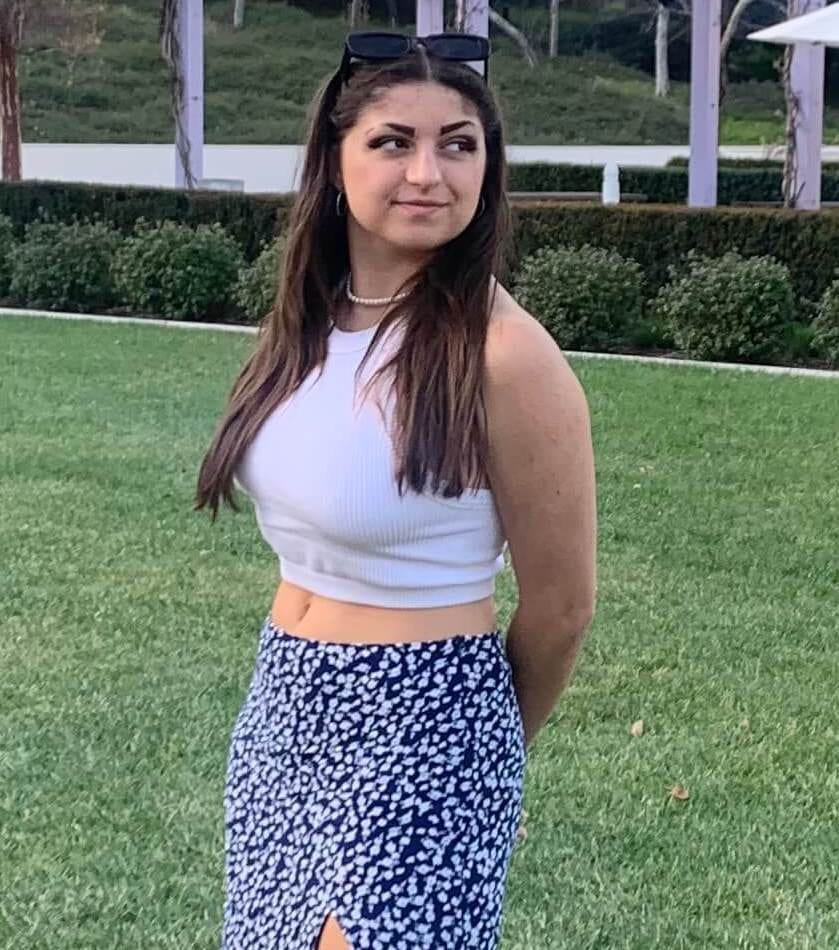
Lynaea Pace
Major: English
Shakespeare in High School
Biography:
Hey there! My name is Lynaea and I’m a third year English major with a double minor in Creative Writing and Classics. I’m planning on getting my MA/PhD in Classics after undergrad and hopefully become a Professor of Classics. I spend my free time reading, writing, working out and watching Formula One. I am probably the most stereotypical English major as one of my favorite topics is Shakespeare and I love getting to talk about it. I’ve found through my conversations with people that a lot of people dislike Shakespeare because they found it too confusing or boring. I felt that a lot of people didn’t realize that Shakespeare is prevalent in modern culture in more digestible content and actually a lot of films are inspired by Shakespearean tropes and plays, so I decided to make this course!
I have always known I wanted to be some kind of teacher, so when I received an email about the UTeach program, I was so excited to apply. I’m excited to have this opportunity to teach something I’m passionate about and I’m hoping to give students a new perspective and maybe even change their minds about Shakespeare.
Course Description:
One of the most common modern day criticisms about Shakespeare is that it is too confusing for current audiences. Because of this, a lot of people tend to avoid Shakespearean literature like the plague and try to “leave it in the past”. What a lot of people don’t realize is that Shakespeare is still extremely relevant in contemporary media. Besides the countless number of Shakespearean tropes that have made their way into present day film, modernized movie adaptations of his plays are still very popular, and a lot of people don’t even realize they’re Shakespeare! Movies like 10 Things I Hate About You and She’s the Man are directly based on the plays Taming of the Shrew and Twelfth Night. Other movies, like Mean Girls, are not originally meant to be adaptations, but share major similarities to the play Julius Caesar. In my course we will be taking a deeper look into all three of these movies and comparing them to the original texts to see what has stayed the same, what has changed and what it says about the society of the time. We will also try to understand why Shakespeare has stayed so relevant to modern society despite being written over 400 years ago.
Enrollment Information: TBA
Faculty Mentor: Julia Lupton
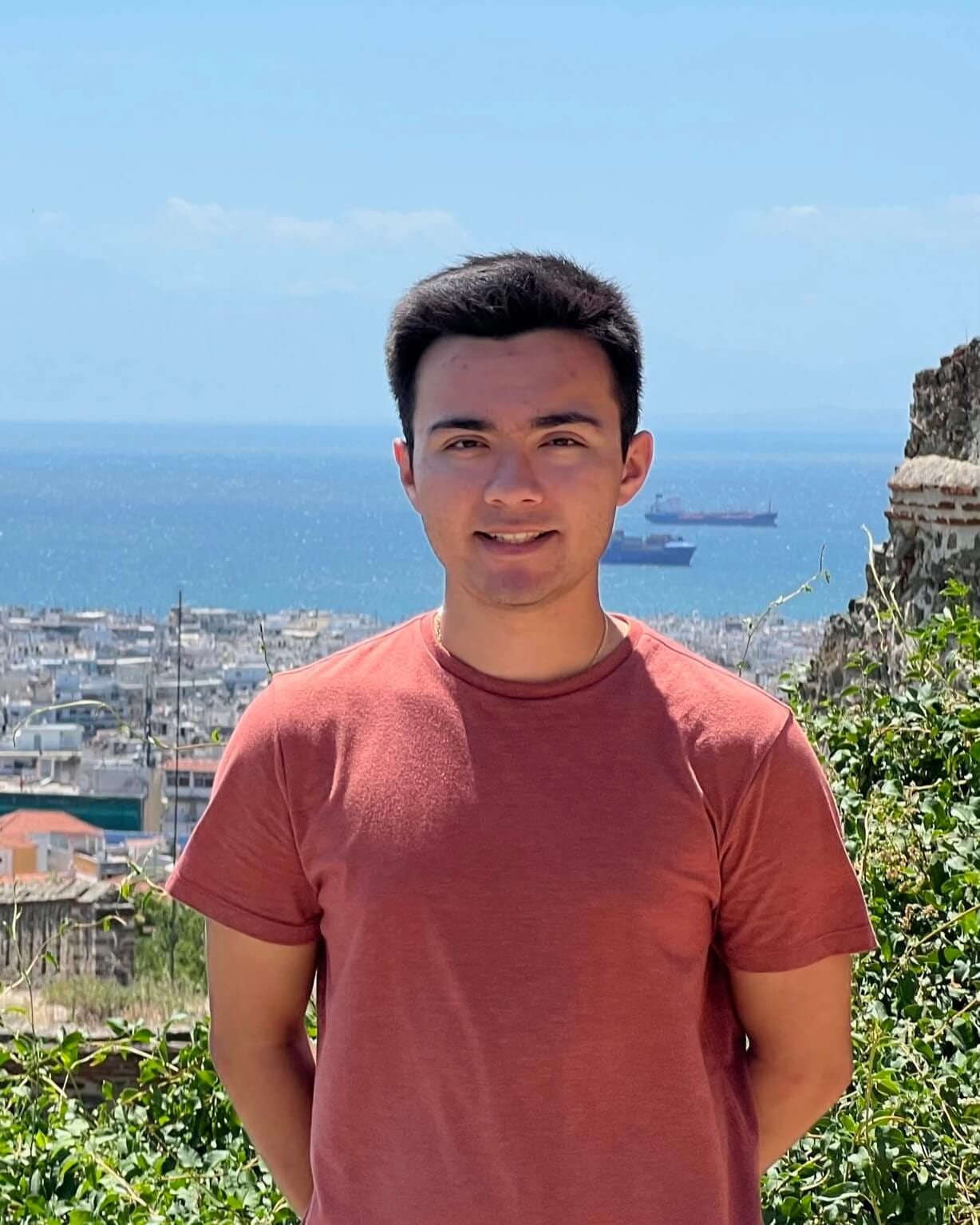
Spiro Sun
Major: History
War and Modern Greece: Conflicts That Shaped a Nation
Biography:
Hello everyone! My name is Spiro Sun and I am a third-year History major. As someone who is half-Greek, I have found a passion in learning about my heritage and sharing it with others. My love for teaching Greek culture and history was first cultivated back in high school, where I founded and ran ‘Greek Culture Club’ for over two years in which I researched and presented on various aspects of modern Greek culture and history. In my time at UCI, I have enjoyed more formally continuing to research many of the topics that first captivated me in high school. One topic I have done research in recently involves Greek Orthodox Christian resistance against Axis occupation during World War II. In my time outside of UCI, I enjoy traveling (photo is of me in Thessaloniki this past summer), listening to music, hiking, and spending time with friends and family. I also enjoy doing traditional Greek dance, both teaching for and participating in regional Greek events.
Through my experience, I have discovered that there is often a disconnect between what many people typically associate with Greece and what modern Greece is in reality. Beyond popular stereotypes and common misconceptions lies an incredibly beautiful and diverse culture full of easily overlooked nuances that, over centuries of tragedy and progress, have made Greece what it is today in the 21st century. I am excited to be teaching this course and am grateful for this outlet UTeach has given me. Whether you know a lot about Greece, nothing at all, or somewhere in between, I hope that this course will allow you to better understand modern Greece and its culture, and how that culture has been shaped by its more modern history.
Course Description:
“War and Modern Greece: Conflicts That Shaped a Nation” explores the ways in which major conflicts in 19th and 20th century Greek history have influenced and altered the development of the modern Greek state. This course is designed such that no prior knowledge of the subject matter is required. Although much of what people associate with Greece comes disproportionately from ancient Greek contributions to Western culture and thought, these perceptions are often far removed from what the country of Greece is actually like today. War and conflict in modern Greek history has yielded some of the greatest impacts to modern Greek society and culture, and their influences can be felt through to the present day. The course begins with the Greek War of Independence in 1821 and progresses chronologically through different events to the present day. Each week, students will analyze and explore how each event has left its mark on Greek national understanding and identity. Due to the nature of the course material, some discussion topics will address chapters of Greek history which can be difficult and complex. Beyond simply acquiring greater awareness of this critical history, the goal is to facilitate thoughtful and meaningful conversation. By studying pivotal moments which have shaped Greece in roughly the last 200 years, students will develop a more deep and nuanced understanding into why modern Greek society and culture looks the way it does.
Enrollment Information: TBA
Faculty Mentor: David Igler
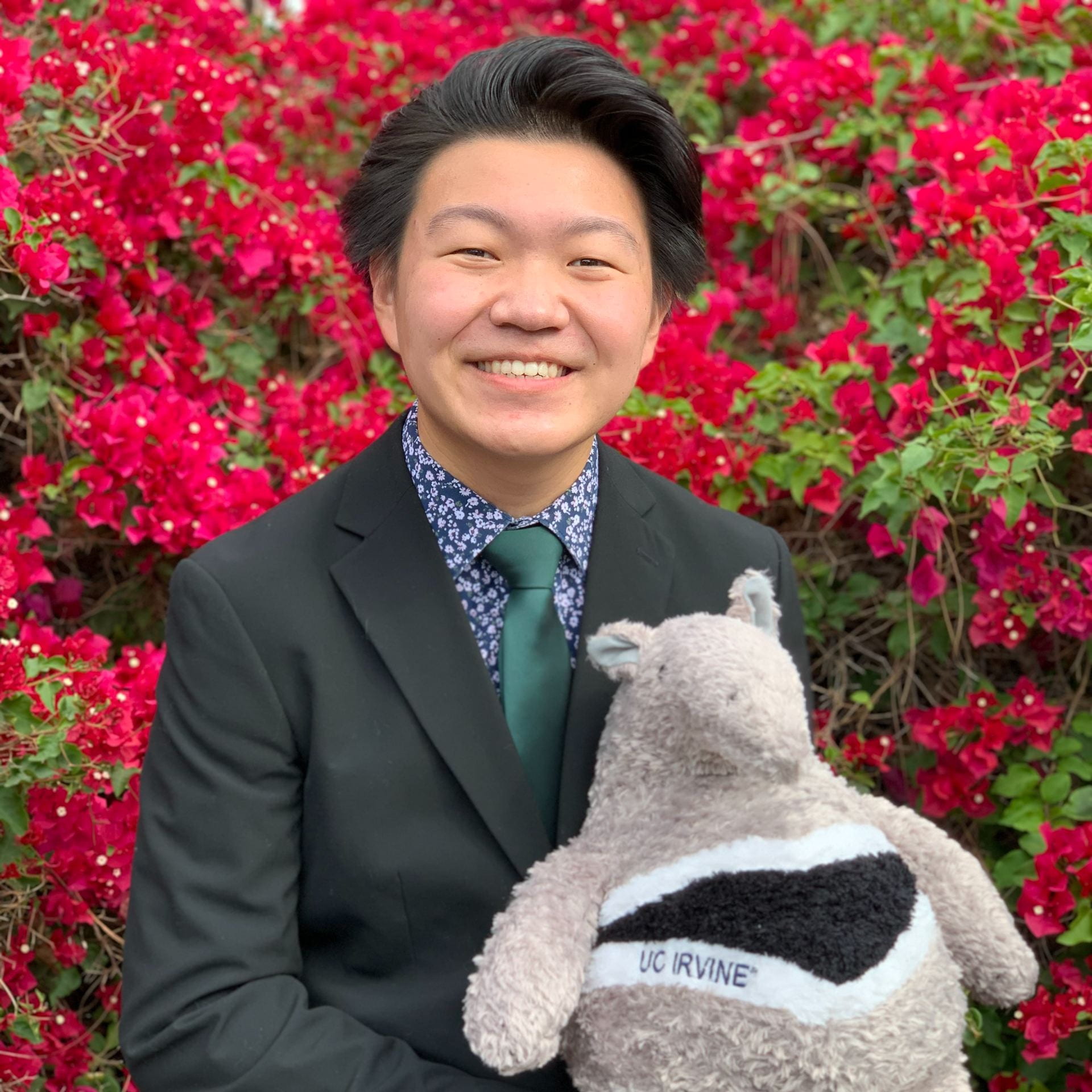
Jacob Liu
Major: Human Biology
The Physiology of Superheroes
Biography:
Hey y’all! My name is Jacob Liu (he/him), and I am a fourth year Human Biology major in the Campuswide Honors Collegium (CHC). At UCI, I am a Honors Peer Academic Advisor for the CHC, the President of Morning Sign Out, the Co-President of Global Medical Brigades, and the Treasurer for the Human Biology Club, Nu Rho Psi, and MEDLIFE. In the future, I hope to attain a MD/PhD dual degree to become a physician scientist and research biotechnological alternatives to improve accessibility to medical care. When I’m not scootering between these responsibilities, I enjoy hanging out at the beach, gaming with friends, and curling up on the couch to catch up with my current cinematic obsessions.
Having grown up watching The Incredibles and Spider-Man, I find a deep appreciation for science fiction that is manifestly plausible as just a step apart from our real world. Whether it’s a supervillain plotting to take over the world or a superhero finding a way to foil their plans and save the day, I have always had a deep fascination for the plausible science fiction of brilliant minds combined with fantastical powers in the epic battle between good and evil. By finding scientific inspiration from imaginative fiction motivated by a heroic heart, we may innovate ourselves into the future to bring the science fiction of tomorrow to life today!
Course Description:
In this modern age, superheroes have leapt from comic book pages to the silver screen, captivating audiences worldwide. In parallel, our scientific understandings have reached new heights as we pushed the frontiers in every field of study past known limits. In this class, we will explore the extraordinary theoretical physiology of our favorite superhero icons of pop culture to gain a deeper understanding into how biological research and development can be guided to new heights by our imaginations. From the retractable claws and incredible healing powers of Wolverine to the spectacular powers of super strength, heat vision, and flight of Superman, this course will demystify superhuman biology to find out what makes these fictitious superheroes super. Join us for an immersive exploration into how science fiction comic book wonder meets physiological reality!
Enrollment Information: TBA
Faculty Mentor: Dr. Andrea Nicholas

Andrew Nguyen
Major: Political Science
The United Nations: Roles & Criticisms
Biography:
Hello! I’m Andrew, a third-year student at UCI pursuing a degree in Political Science and a minor in History. Much of my passion stems from my experience working in the educational field and being involved in the community. For the past three years, I have worked as a College Tutor for my local school district and as a Course Assistant at UCI under the School of Social Sciences, which continues to fuel my interest in education policy and various legal fields, such as constitutional and employment law. I plan on furthering my education by attending future graduate programs and law school in the goal of becoming a practicing attorney. As the legal field does have many interesting facets, international law tends to be overlooked. UTeach has granted me the opportunity to investigate a particular side of Political Science which relates to global governance and the dynamics of international cooperation. Having been involved in Model United Nations since high school, my passion for educating and exposing global issues to new audiences has been elevated through the UTeach program, where I have the opportunity to share an interest of mine.
Course Description:
Global connectivity and international diplomacy is a topic that operates around our daily lives, both directly and in the background. The United Nations is a fundamental aspect of global governance, which addresses a multitude of diverse international issues we may be confronted with. Throughout the course, we will discuss the historical tapestry that led to the United Nations’ establishment post-World War II and explore the many systems and facets of the international body.
From a theoretical and analytical perspective, the course will shift to a more practical study of the United Nations, honing in on the actions and functions in different cases while incorporating an immersive experience of the United Nations. In recognizing the strengths of the United Nations in reference to its structure and mission, we will also address criticisms and limitations stemming from intergovernmental diplomacy. With simulated and interactive activities throughout the course, our prime goal is to immerse ourselves into the diplomatic and intricate workings of the United Nations.
Enrollment Information: TBA
Faculty Mentor: Alon Burstein
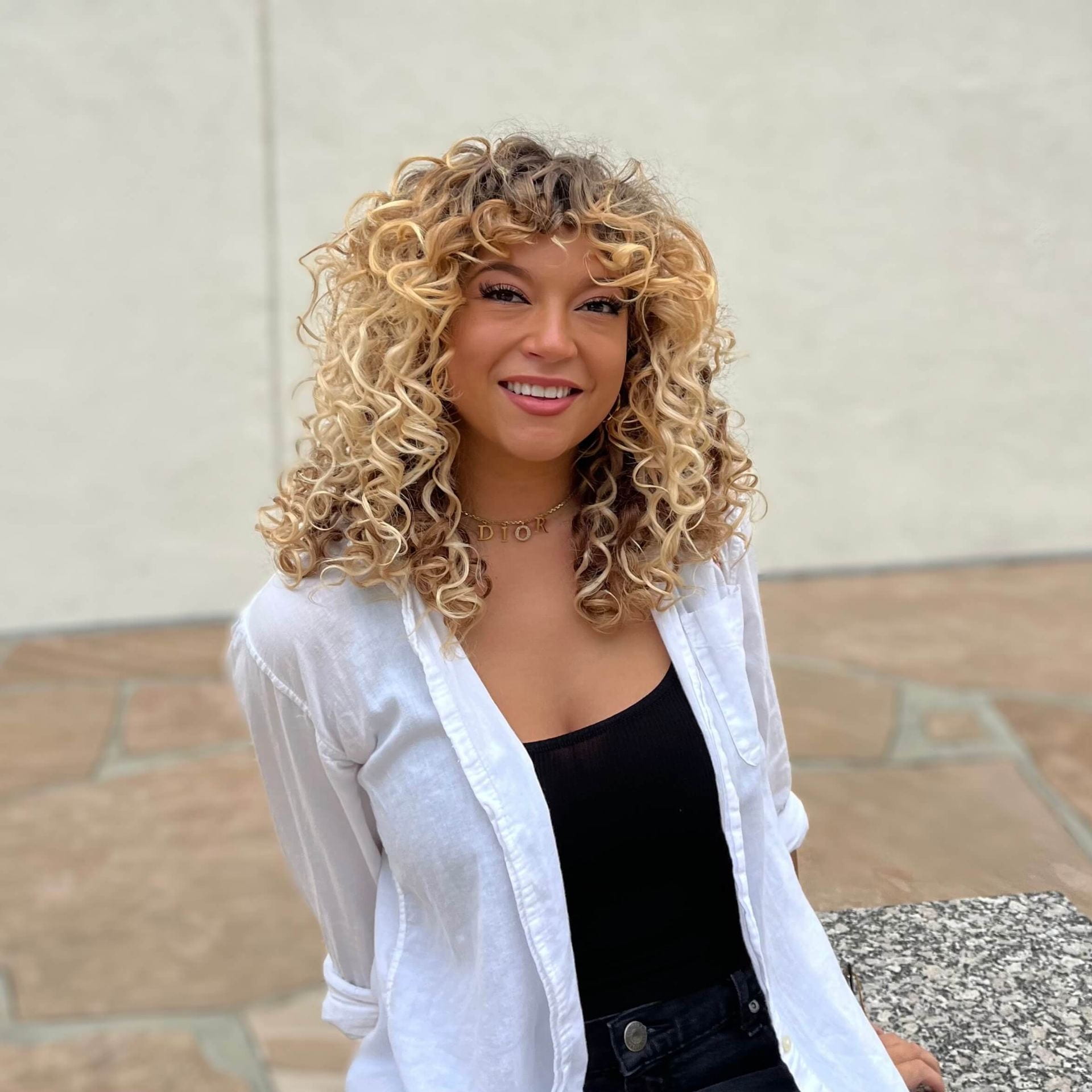
Alyssa Marie Gaylard
Major: Philosophy
Reproductive Justice & The Law
Biography:
Hello everyone! My name is Alyssa (she/her) and I’m a fourth-year majoring in Philosophy with a minor in African American Studies. After graduating, I plan to continue my educational journey in law school and eventually pursue a legal career. Though, reading and discussing philosophy and critical theory will always have a special place in my heart! Outside of my academic interests, I enjoy tending to my many plants, writing witty reviews on Letterboxd, spending time skiing in the backcountry, and, as of recently, learning to surf. While I’m originally from Toronto, I’ve enjoyed exploring all that Southern California has to offer during my time here at UCI.
I first became involved in advocacy work for reproductive rights in early high school when my province took legislative measures to protect reproductive health clinics and their patients from harassment and intimidation. Since then, my engagement with reproductive justice has expanded to include a more specific interest in the nuances of reproductive law. Given the ever-changing nature of our contemporary legal and political landscape, I was especially motivated to create this course in the hopes of shedding light on the inner workings of reproductive law and policy.
Course Description:
This course will offer students an opportunity to explore the legal and political history of reproductive rights in the United States and consider the future implications of contemporary reproductive law. Throughout the seminar, we will learn about and critically analyze landmark legal cases that concern both the expansion and restriction of reproductive rights. Some of the cases that we will cover during the quarter include: Roe v. Wade, Relf v. Weinberger, Dobbs v. Jackson Women’s Health Organization, and more! Through this examination of reproductive law, you will gain a better understanding of legal terminology and argumentation. Additionally, we will consider how racism and exploitation played significant roles in shaping contemporary reproductive policy. Our seminar will culminate in a reflective discussion on what the future of reproductive justice might look like given the constantly changing state of American reproductive law and policy. Overall, my hope for this course is to provide a learning environment that promotes thoughtful and open discussion on the legal, political, and social implications of reproductive legislation. No prior knowledge of reproductive history or law is required.
Enrollment Information: TBA
Faculty Mentor: Mahaliah A. Little
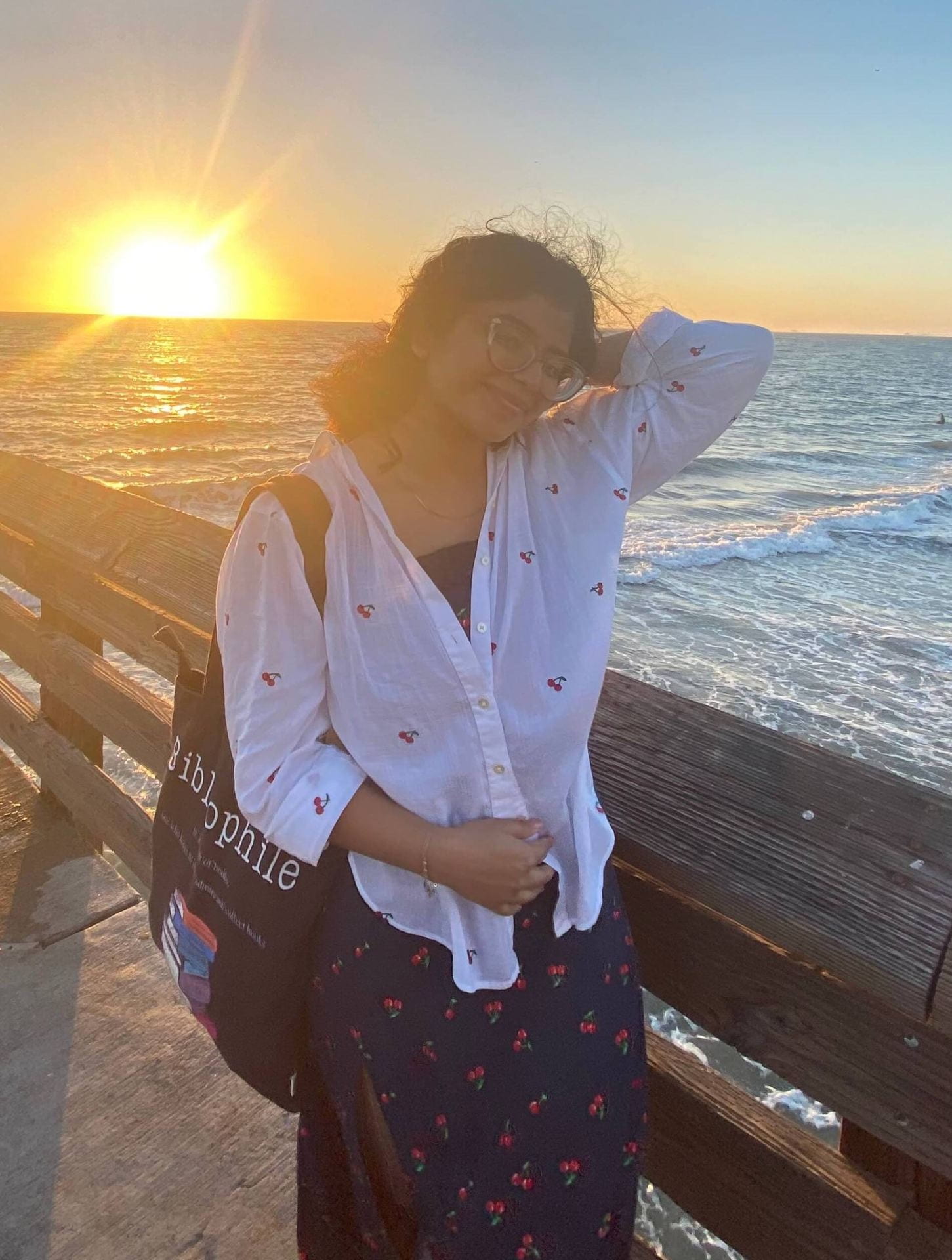
Nandini Sharma
Major: International Studies, French
Treaty Design
Biography:
Hello everyone! I am Nandini Sharma and I’m a third year with majors in International Studies and French. I am currently completing my thesis research in analyzing climate refugees and their place in international law. On campus, you’ll find me in the student government office, in a Model United Nations team meeting, or working with my Humanities mentees. I love baking and crafting, basically any creative outlet. I always carry two books with me (fiction and research), and am forever occupied by my favorite hobby: reading — always looking for recommendations!
Working and studying global history and how it has impacted our modern world structures have inspired me, and I’ve loved how stories have a way of weaving themselves into global governance. Without the testimonies of people, or their negotiations with others, we would never be where we are right now. I am so excited that I have this opportunity to share these connections of communication and diplomatic creations through UTeach!
Course Description:
You may have heard of the Treaty of Versailles, the one that ended the second world war. You may have also heard of Geneva Conventions, that changed war, or even the Vienna Conventions, that transformed global diplomacy. But there are also a million other treaties that form the basis of governments, borders, trade, and civility today. This course will explore a diverse range of treaties and the principles behind their creation.
Students will not only get to know world history through the lens of political negotiations, but also the skills necessary to create these agreements. We will learn through discussions about the principles of diplomacy and treaty design, with case studies that highlight every ideal. After understanding these detailed philosophies and examining the behind-the-scenes situations of statecraft, students will identify the style of language that makes or breaks governments. No past knowledge of world politics or history required!
Enrollment Information: TBA
Faculty Mentor: Dr. Erin Lockwood
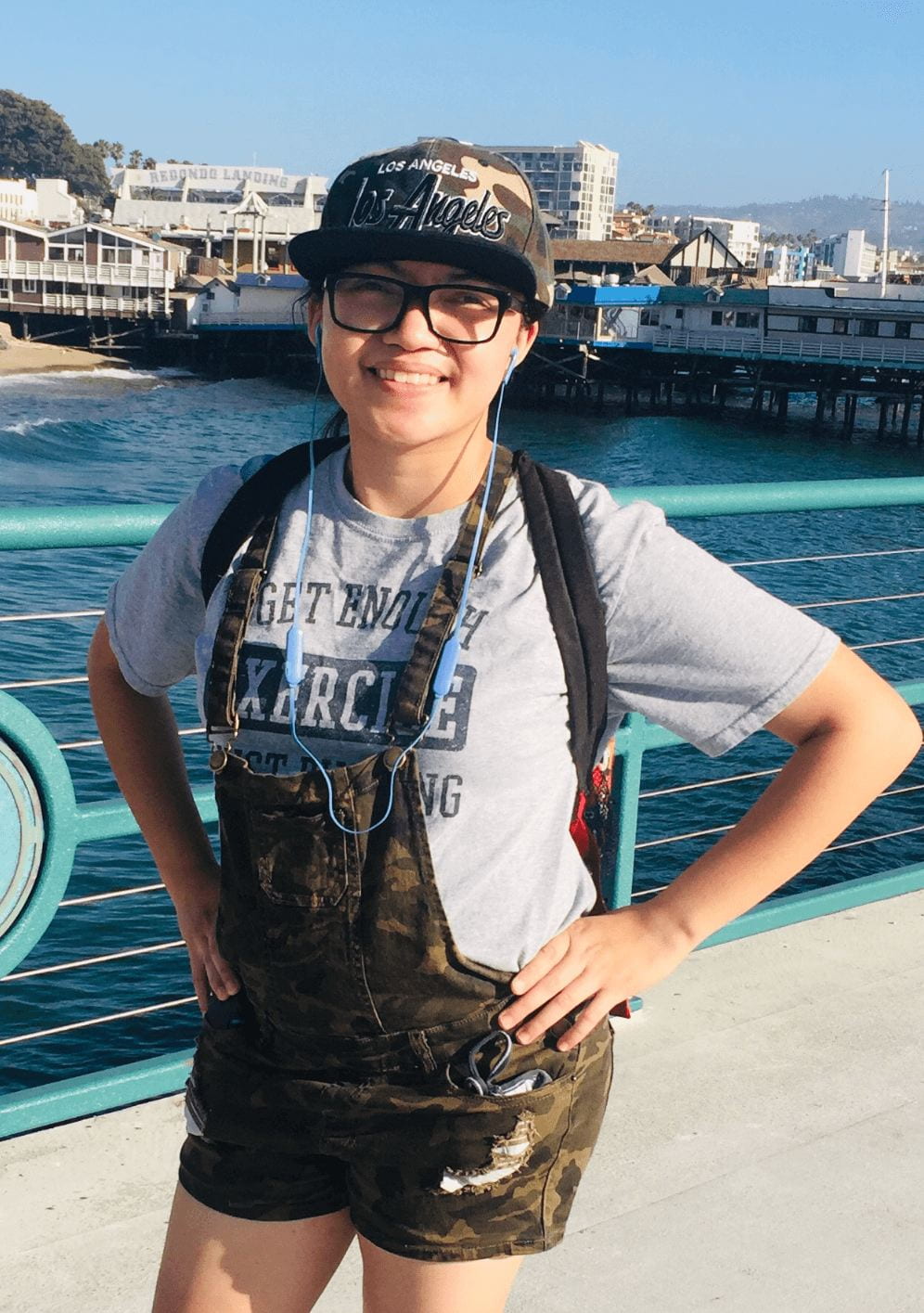
Kaye Bilbao Regalado
Major: Literary Journalism, Film and Media Studies
Memes and Society
Biography:
Hi everyone! I’m Kaye Regalado (pronouns: she/her/hers), a fourth year double majoring in Literary Journalism and Film and Media Studies, and minoring in creative writing. Through my time at UCI, I’ve worked at the UCI Writing Center as a peer mentor, supported students in the Summer Bridge program, and I’ve been involved with different kinds of humanities research involving archives, community activism, and oral histories. In my free time, I enjoy journaling, drawing, listening to music, anime/animated stuff in general, and partaking in more sugary things than is probably healthy for any human being.
Memes seem pretty silly, topic-wise, but, as someone who is chronically online, they are something that I’ve always been fascinated with. It’s astounding to me how little we know about memes, despite how much we see them every day. Memes have always made me laugh and have always brought me joy, and I hope to share that with you all! In this class, I hope to give you a new, fresh, perspective on how you consume your social media and your ‘for you’ page. No prior experience about memes is required. I hope we can all learn from each other, and have a great time delving into the depths of the internet together!
Course Description:
A meme, seemingly, can be anything. Something we scroll past on social media on the daily, a meme can be an odd advertisement, a confusing piece of graffiti, an inside joke between ourselves and a close friend – the list goes on. Young people likely come across them daily, perhaps, even several times a day, scrolling through social media, clicking on random recommendations on video sharing platforms, or even just hearing about them in our social circles. But, as integral as they are to the lives of young people, they often fly under the radar of critical analysis.
To some degree, most, if not, all, young people know what memes are. But what are they, really? What function do they serve, and why are or why aren’t they funny? How can we, as students, make use of meme culture? That’s what we’re here to uncover.
Enrollment Information: TBA
Faculty Mentor: Julia Lupton
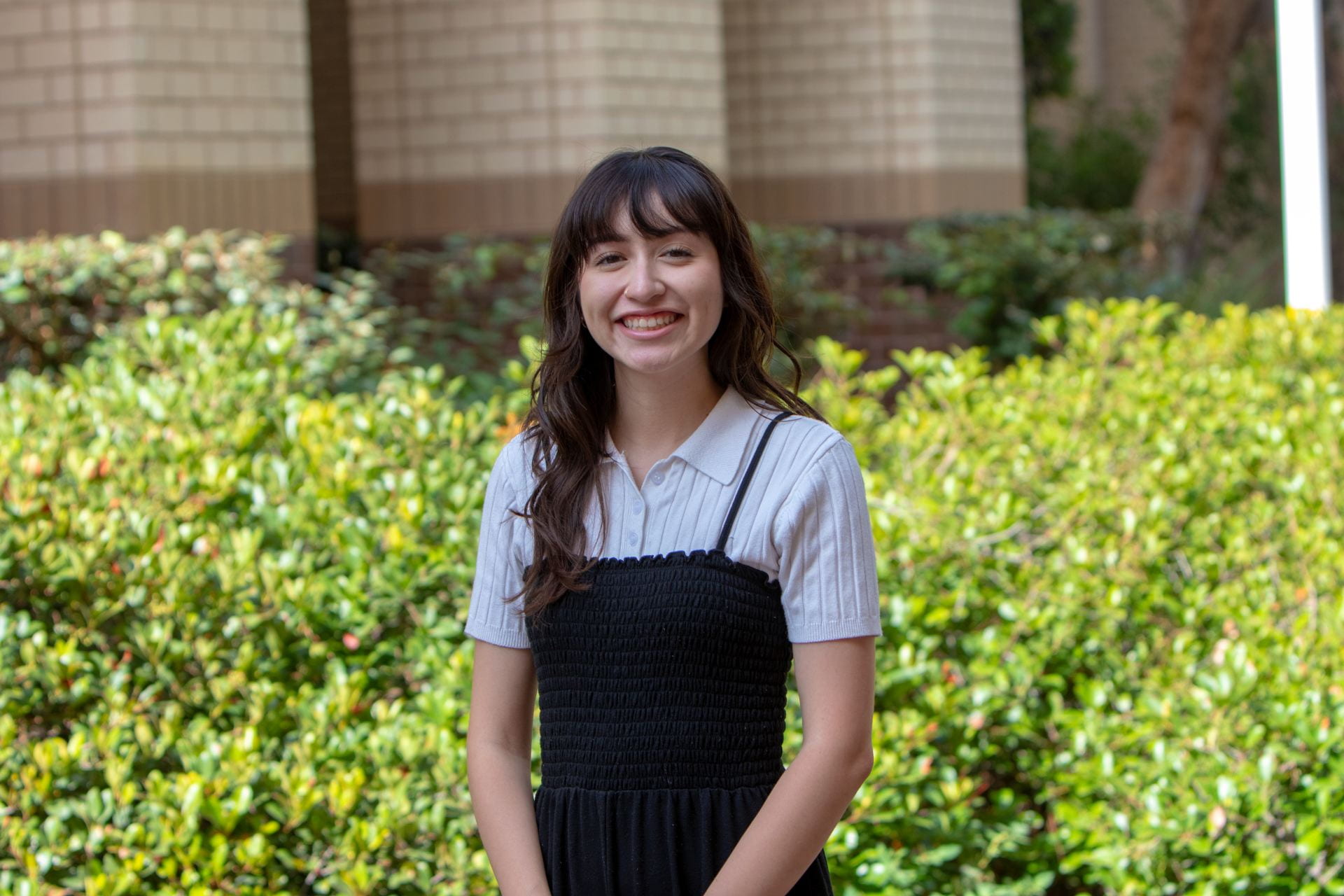
Beatriz Galeana
Major: Psychological Science
Studio Ghibli and the Eco-Narrative
Biography:
Hi everyone! My name is Beatriz (she/they/ella) and I am a first-gen, fourth year Psychological Science major with a minor in Medical Anthropology. Outside of class, you can find me working at the Writing Center, browsing record stores to add to my collection, or writing pseudointellectual movie reviews on Letterboxd. I first discovered Studio Ghibli when I was eight years old and have had a passion for animation and cartoons ever since. This course was born from my Humanities Core research project, where I was able to combine my love for Miyazaki films with my interest in humanity’s relationship to the environment. I hope that students will learn to critically engage with the media they consume and consider how it affects them and creates messages about the world around them.
Course Description:
This course focuses on environmentalist themes shared across three Studio Ghibli films directed by Hayao Miyazaki: Princess Mononoke (1997), Ponyo (2008), and Nausicaa of the Valley of the Wind (1986). During group discussions, we will analyze the films and assess the framing of humanity, civilization, and technology in relation to the natural world. Students will learn about the principles of animation and evaluate its use to tell fantastical stories with real-world implications. Our conversations about human-nature coexistence will be guided by readings and lectures about Japan’s environmental history and the links between the environment and marginalization. Students will be encouraged to pursue their own interpretations of each film through journal entries and creative assignments. No prior knowledge of film or Japanese language required.
Enrollment Information: TBA
Faculty Mentor: Jon Pitt
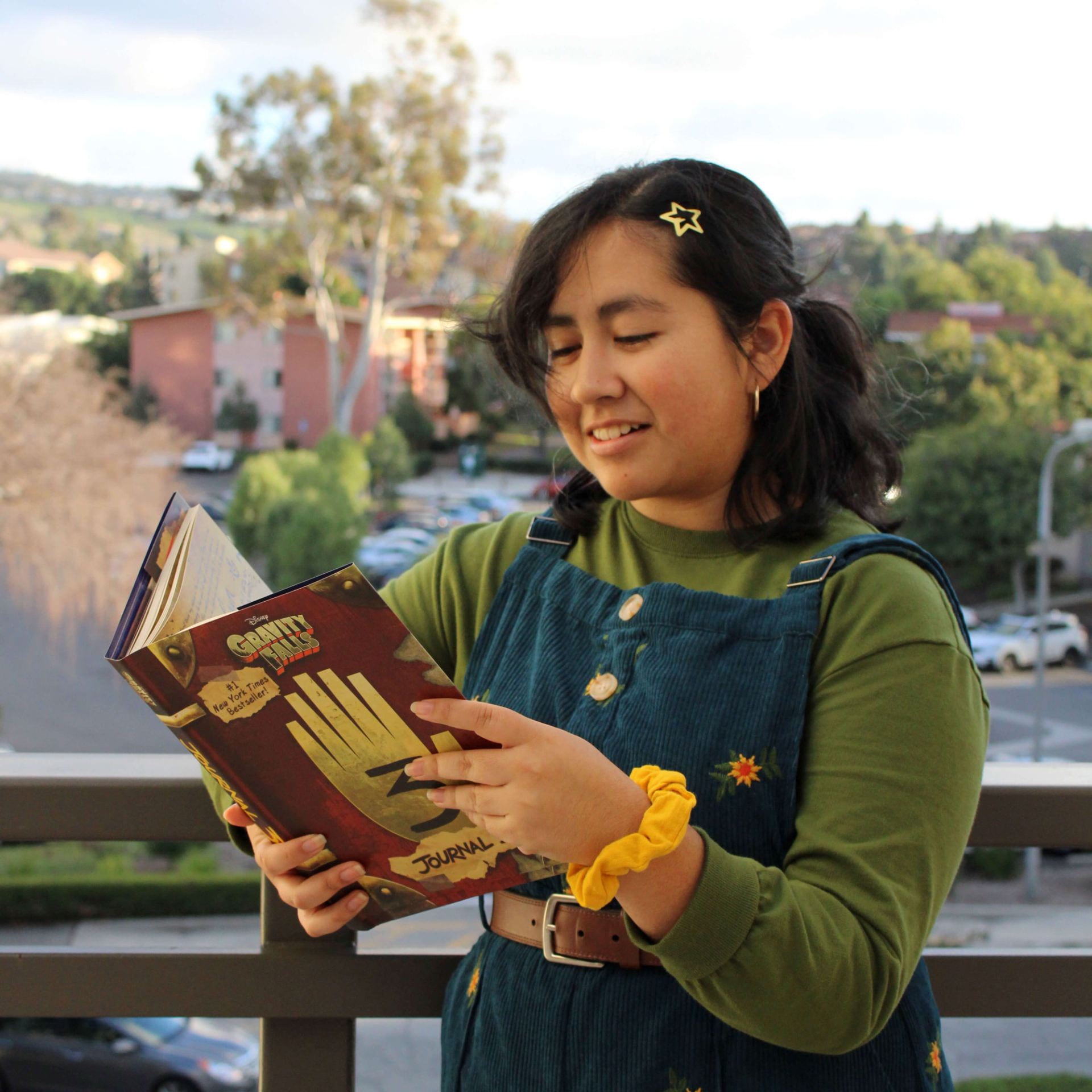
Nataly Juarez
Major: Film and Media Studies
Digital Transmedia Storytelling
Biography:
Hello there! My name is Nataly Juarez, but you can call me Taly. I am a third-year Film & Media Studies major with a personal interest in game research and I am thrilled to be a UTeacher this year! I have always lived by the value of pursuing your passion and making education fun. As a student devoted to all things adventurous, I hope to extend my fascination for interactive stories with my class.
Currently, a part of my adventure here at UCI includes playing percussion in the Anteater Pep Band, working as a technician for athletics and the FMS department, advocating for queer representation, and supporting student filmmakers. As a game fanatic, I enjoy its visual, musical, and narrative similarities to film. I also like to sew, play Dungeons & Dragons, cook, and watch cartoons. I am greatly inspired to teach by my high school band director and teachers.
Course Description:
The culture of gaming is very prominent in online society and can be used as a tool to make stories more accessible. Digital Transmedia Storytelling is a course designed to analyze how games are being utilized by entertainment franchises and independent creators. The class will analyze puzzle-solving methods used by internet communities that are dedicated to playing video games, watching videos, finding secret codes, and more. Students will learn how digital elements of transmedia storytelling share common features with other games that have made their way into popular culture. The class will explore how this narrative format has altered entertainment and information accessibility, enabling people from different backgrounds to freely solve different puzzles, where the reward is the story.
Enrollment Information: TBA
Faculty Mentor: Aaron Trammell
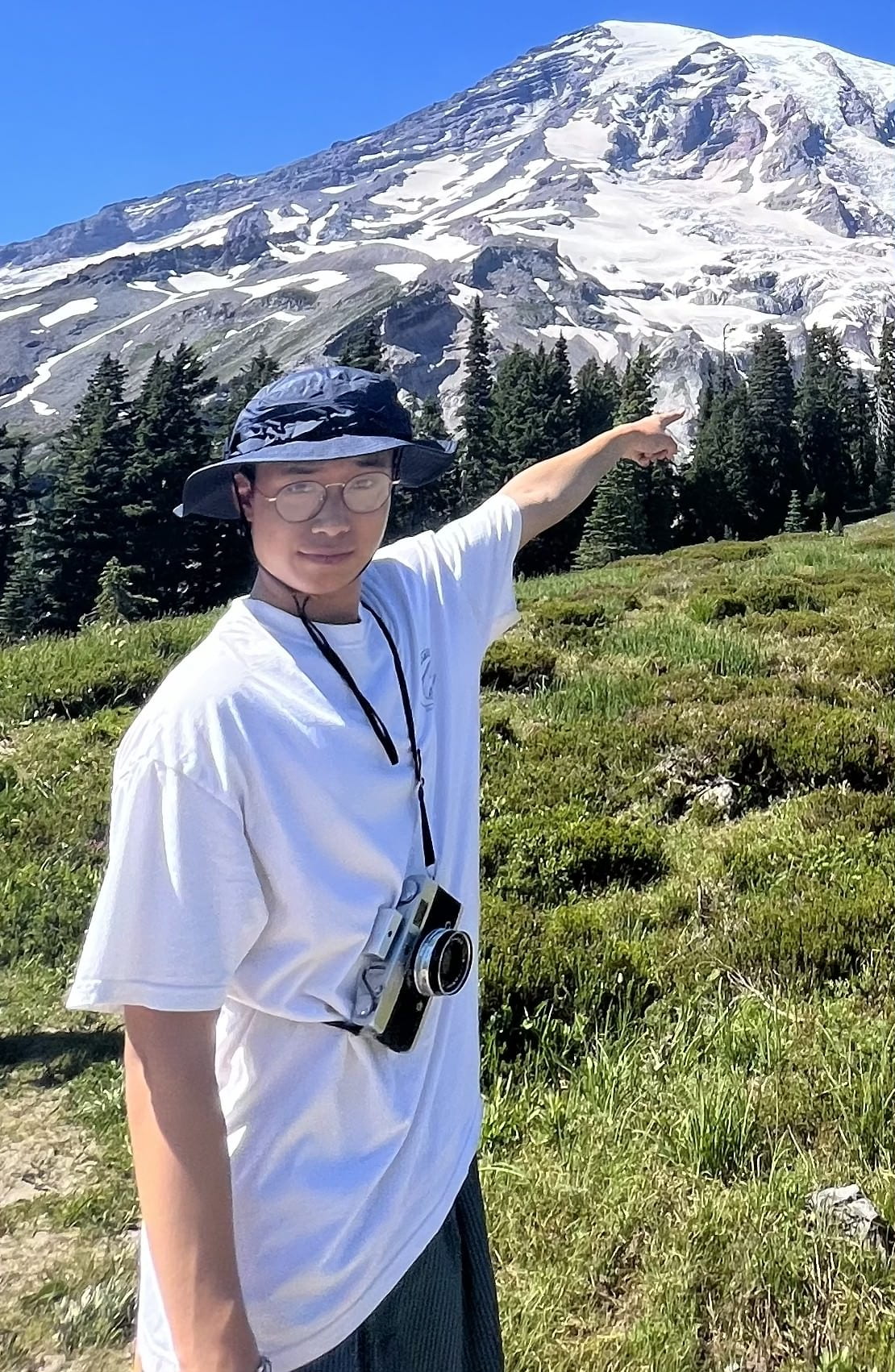
Brian Hoang Nguyen
Major: English, Political Science
Vietnam War Stories
Biography:
Hi there! My name is Brian Nguyen and I am a fourth-year double major in English and Political Science with a minor in Creative Writing. At UCI, I am the President of the English Majors’ Association and I do research involving critical theory and political economy. Outside of school, you can find me milling about at art museums or grunge/rock shows (ask me about my music taste!). I like to think that I am enthused by many things—chief among them are food, friends, and literature. Other than that, I like film photography, reading/writing poetry, and board games!
As a first-generation Vietnamese American college student, this course is an attempt to reconcile my identity with my love of literature and storytelling. I look forward to having some fun reading together!
Course Description:
The Vietnam War has had a tremendous life in terms of its media representation. Known as the first television war, the stories told about the war in Vietnam began, for many Americans, on the home TV screen. But these stories have a range of tellers, modes, and mediums, and this course sets out to explore the variety of stories that have been told about the war. We will discuss excerpts and texts that take the form of novels, short stories, films, and poems while attending to multiple perspectives other than just that of the American soldier. The common thread that ties these different perspectives and forms together is that of memory. How does memory, and more specifically trauma, limit or facilitate the act of writing or storytelling? How does the act of remembering through storytelling work to erase or form identity groups for those involved in the war? The aim of this course is for students to leave having familiarized themselves with some of the different perspectives involved in the Vietnam War and having thought about trauma-informed writing and the ethics of storytelling.
Enrollment Information: TBA
Faculty Mentor: Michael Szalay
